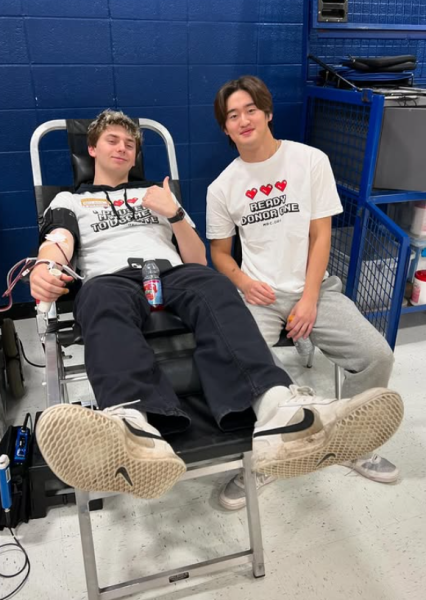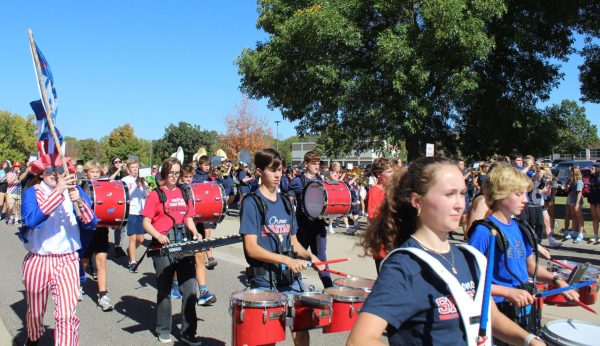Understanding Official Curfew Law
An Orono Police squad car.
The word “curfew” has become a dreaded term when it comes to a student’s plans.
The official law for OHS Hennepin County is a curfew is intact for anyone under 18 years-old. This was made to protect children from crime that may occur late at night, according to the Official Law Ordinance of Hennepin County.
The official law is to be home by 9 PM for anyone under 12 on weekdays and on weekends by 10 PM. For ages 12 to 14, they need to be home by 10 PM and 11 PM on the weekends. Ages 15 to 17, teenagers need to be home by 11 PM on weeknights and midnight on weekends, according to the Official Law Ordinance of Hennepin County. In some cases, people are unaware of the rules and punishments of a curfew.
“Do you just get a warning?” Junior Olivia Chumbler asked, referring to the legal punishment.
Most curfew laws apply to juveniles under the age of 18, and they apply to any public space or establishment, such as parks, restaurants, the movie theatre, etc. Although, there are exceptions, such as, if a teen were accompanied by a parent or guardian they are allowed to be out past these deadlines. The punishment for disobeying the curfew is a fine (increases for subsequent violations), community service, restriction of a driver’s license, or detention in juvenile hall, according to Criminal FindLaw.
“Yes, I know it is 12 AM for 16 year-olds, and you get a curfew citation and after three you have to complete community service,” junior Jarvis Thomas said, referring to his knowledge of the legal curfew and punishment.
The curfew law applies all around the world. For example, Australia just implemented a curfew system stating anyone from the age of 13 to 16 cannot leave their house at night without an accompanied parent. The Thai police enforced a directive prohibiting anyone under 18 in Bangkok to not leave their house after 10 PM without justified reasons, according to The Star. These are two examples of the parallelism of our Hennepin County curfew vs. places across the world.
“Kids aren’t out when it could be dangerous on the road with drunk drivers,” senior Anna Schaible said, referring to why teens need curfew.
There are some benefits to curfew. Curfews can benefit a student’s overall health by allowing them to stay out of trouble, manage their time, avoid sleep deprivation, and have an increased focus in school, according to Jenna Welsh, a Times columnist. Criminal activity is more likely to occur later in the evening when parental supervision is not present, according to Jenna Welsh.
“Your parents have set a ground rule,” junior Jarvis Thomas said, referring to the positives of a curfew.
Also there are negative impacts that question the ordinance’s effectiveness. Some parents take it upon themselves to disregard the legal curfew and to create their own.
“My parents and I agreed on a 1 AM curfew,” junior Mara Holm said.
In some studies, there has been evidence that a curfew is just a displacement for crime from one part of the city and one time of the day to another. In Detroit, after it adopted a youth curfew in 1976 the juvenile crime dropped 6 percent during the curfew hours, but it increased 13 percent in the mid afternoon, according to Jonathan Zimmerman, a reporter at NewsWorks. In Monrovia, California, in July and August, when the curfew was not enforced, crime went down 12 percent.
“There shouldn’t be a civic curfew, but it should go family by family,” History teacher Jeff Aman said.






















































